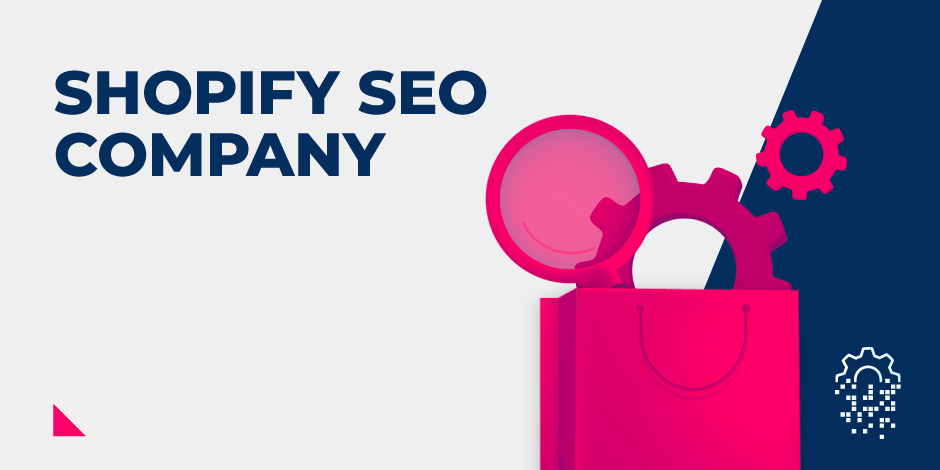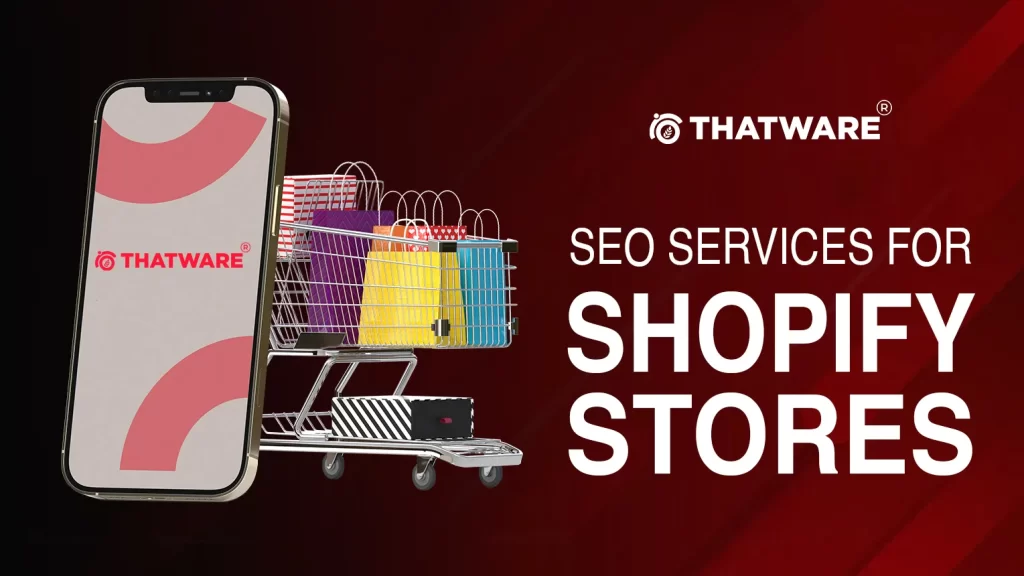There are many reasons why keyword research and strategy creation are essential to the performance of your Shopify store:
1. Improved Search Engine Rankings
Keyword Research: Identifying the appropriate keywords can help improve the quality of product descriptions and titles, meta tags, and other content. The optimization of the store makes it more likely to show up on search engine results pages (SERPs) when potential customers search for those keywords.
Strategic Development: A planned strategy for keywords helps a store target keywords with high value that drive traffic and increase conversions. This involves analyzing the competition landscape and selecting keywords that have a high mix of both volume of searches (volume) and competition.
2. Organic traffic growth
Keyword research: By targeting keywords that are relevant and popular to your site, you can increase the amount of users who are actively searching for products that are similar to yours.
Strategy Development: Design an effective content strategy based around these key words. (e.g. blogs guidebooks, guides or product descriptions). This helps to produce valuable content which regularly draws organic traffic.
3. Effective Targeting and Relevance
Keyword Research: Helps you understand what potential customers are searching for, and allows you to develop products and services that meet their requirements and preferences.
Strategy Development: consists of segmenting keywords based on buyer's intent (e.g. informational, navigational, or transactional) to make sure that your store is addressing various stages of the buyer's journey efficiently.
4. Improve the User Experience
Keyword Research: Discovering terms that can be used to answer commonly asked questions or issues allows you to develop useful material, like FAQs, tutorials, or product comparisons, improving the user experience.
Strategy Development: Make sure that the content of the store is organized, and users are able to effortlessly navigate the website to locate what they are looking for.
5. Competitive Advantage
Keyword Research uncovers gaps in the market where competitors may not be targeting, and provides opportunities to capture previously untapped customers.
Strategy Development: This allows you to create a distinctive value proposition for customers by focusing on long-tail and niche keywords that your competitors might overlook.
6. Conversion rates have increased
Keyword research: This can help attract highly targeted traffic, by ensuring that search intent is matched to relevant keywords. This increases the probability of conversions.
The creation of a keyword strategy is important to increase your conversion rates. By aligning the strategy with marketing and sales goals, you can improve product pages, landing pages, and calls to actions.
7. Cost-Effective Marketing
Keyword Research: Provides insight on the most cost-effective keywords to target, especially for paid campaigns like Google Ads, ensuring a higher return on investment (ROI).
Develop a strategy to help distribute budgets effectively across different marketing channels. Focus on the high-performing keywords which drive the most results.
8. Data-Driven Choices
Keyword Research is a valuable source of information on the trends in search, market demand and user behavior. This data can be utilized to design and enhance strategies for marketing.
Strategy Development: Provides continuous optimization based on data from performance, allowing for adjustments in strategy to improve results over time.
It is crucial to remember that keyword research as well as the formulation of strategies are crucial for an Shopify online store to become easily found and to be competitive. They are crucial for attracting the right audience and enhancing customer experience, driving sales, and overall growth. Have a look at the most popular SEO services for Shopify for site recommendations.

In What Ways Are Local Seo Factors For Your Shopify Store?
Local SEO is essential for the success of a Shopify Store, especially if you are a business that caters to specific geographic areas. Local SEO is important in the following ways:
1. More visibility on local results of searches
Local Pack Rankings - Optimizing for local search engine optimization can increase your chances to appear on the local search results page. Local packs are a prominent area on Google's search results page that displays local businesses that match the search query of the user.
Google Maps Integration: Local SEO helps your business appear on Google Maps, making it easier for customers living in the area to locate and navigate to your store.
2. Local customers targeted for traffic
Relevant Traffic Local SEO strategies draw highly targeted traffic from users in your area who are actively looking for similar products or services to yours.
Greater Conversion Rates: Local customers tend to be more likely convert into paying customers, as they are often searching with the intention of making purchases locally.
3. Increased Online Visibility for Brick-and-Mortar Stores
Foot Traffic Generation: Local SEO can increase foot traffic to your physical store locations which increases the likelihood of shopping in-store and visits.
Competing against Nearby Businesses. Optimizing your website for local searches will allow your business to appear among your competition. This can give you a substantial edge in the competitive market within your local region.
4. Google My Business (GMB) Better Performance, Google My Business
Optimized GMB listing: Local SEO involves improving your Google My Business listing of your company with accurate details, such a address, phone numbers, and business times. This increases your visibility as well as improving the experience for users in local results.
Customer Reviews. Encourage and manage reviews from your customers on your GMB page to help build confidence in prospective clients and boost local search results.
5. Mobile Search Optimization
Local Intent: Mobile devices are used for a large percentage of local searches. If you are able to optimize your site for local SEO, your store will appear prominently when mobile users search for local businesses.
Location-based services: Mobile users make use of location-based apps to locate nearby businesses. Local SEO strategies make sure your store is visible in these services like Google Maps or Apple Maps.
6. Local Backlinks and Building Citations
Local Directory: Building the citations for your business (name address, address, phone number) in local directories or online listings improves your local SEO.
Local Backlinks: Acquiring backlinks from local sites including local news outlets and community groups, improves your store's authority and relevance in local results of searches.
7. Hyperlocal Targeting
Local SEO allows customers who are hyperlocal to be targeted by specific neighborhoods within your city.
Localized Content: By making localized content, such as landing pages and blog posts that are tailored to specific neighbourhoods and regions, you are able to draw and draw attention to local audiences.
8. Voice Search Optimization
Local Voice Searches. As the popularity of voice search increases Local SEO can help you to ensure your business is found in the results of search results for those who ask about nearby businesses and their services.
Long-Tail Keywords: Local SEO strategies often include targeting long-tail keywords, as well as conversational queries that users are likely to search for when searching for voice.
9. Improved Customer Engagement and Trust
Engagement with Communities: Engaging with local communities via local events, sponsorships, and partnerships increases the visibility of your store and helps build trust with local customers.
Local Testimonials. By displaying testimonials, reviews and ratings from happy customers from the area of your web site and social media profiles to increase the reputation of your business.
10. Measurable outcomes and analytics
Local SEO Metrics Tracking local SEO indicators, like GMB insights local search rankings, and websites that are accessed from local sources enables you to evaluate your local SEO efforts and implement data driven optimizations.
ROI Monitoring: Local SEO efforts can be directly tied to tangible outcomes, such as in-store visits, calls to the phone, and online purchases, enabling you to demonstrate the return on investment (ROI) of your local SEO efforts.
Local SEO for Shopify is critical if you want to target an area of a particular geographic. It can help improve the visibility of local results, draw in targeted local customers, increase the number of customers who visit physical stores, and increase trust with communities in the local area. By implementing effective local SEO strategies, Shopify stores can gain advantage in their local markets, and experience sustainable growth and achievement. Check out the top Shopify SEO services for site recommendations.

In What Ways Are App And Plugin Optimization Crucial To The Success Of Your Shopify Store?
Shopify success is dependent on the performance of the plug-in and app.
1. Upgraded Functionality
Apps & Plugins with More Functions: Plugins and apps allow you to add new features to your Shopify Store, such as advanced product customization as well as chat support and loyalty programs.
Customization Options: Optimized software and plugins allow customization that let you tailor the user experience to your particular needs as well as branding requirements.
2. Improved User Experience
Smooth integration. Optimized apps seamlessly incorporate with your Shopify's existing infrastructure. Users and administrators will experience a seamless user experience.
Efficiency and Performance. Apps and plugins that are optimized for performance are light and efficient. This helps reduce load times and reduces the chance of performance issues.
3. Increased Conversion Rates
Conversion Optimization Tools Certain apps and plug-ins have been designed to improve conversion rates using tactics like abandoned cart recovery, pop-ups that have exit intent or personalised product recommendations.
Streamlined Checkout: Optimized Apps and plugins streamline the process of checkout. They cut down on the amount of friction and make it easier for shoppers to finish their purchase, and ultimately improving conversion rates.
4. SEO Enhancement
SEO Tools: A few applications and plugins provide SEO optimization features that help improve your store's visibility in results from search engines including meta tag optimization and structured data markup or XML sitemap generation.
Optimization of page speed Optimized plugins, apps and themes contribute to a faster page load time. This is vital for user satisfaction as well as the search engine's ranking.
5. Data Analytics and Insights
Analytics Integration: Optimized apps and plug-ins usually have built-in analytics tools which offer valuable insight into customer behaviour, traffic sources, and sales performance. They allow you to make informed choices to enhance the efficiency of your store.
A/B testing: You could make use of optimization tools to test A/B variations on your website to discover which variants are most effective in generating revenue and converting visitors.
6. Mobile Optimization
Responsive Design: Optimized applications and plugins are designed with mobile responsiveness in mind, ensuring that your store appears and operates seamlessly across different sizes of screens and devices.
Mobile-specific functions: Some apps or plugins offer mobile-specific features like mobile-friendly product galleries and pop-ups. These features enhance the mobile experience and encourage mobile conversions.
7. Inventory and Orders Management
Inventory Tracking: Optimized plug-ins and apps help streamline the management of inventory, such as keeping track of stock levels, coordinating variations of products, as well as setting automatic reorder thresholds. This reduces the risk that overselling or stockouts will happen.
Order Fulfillment - Certain programs and plug-ins connect with shipping and logistics companies to automate the fulfillment process, reducing time and reducing shipping errors.
8. Customer Relationship Management CRM
Customer Segmentation - Optimized CRM software and plugins enable you to segment your clients based according to various criteria such as purchase history and demographic information. This allows you to create targeted marketing campaigns and personal communication.
Email Marketing Automation: A lot of CRM tools include email marketing automation functions such as product recommendations that are personalized or abandoned cart recovery emails to engage customers and promote customers to make repeat purchases.
9. Security and Compliance
Data Protection Apps and plugins that are optimized ensure compliance with laws governing data protection, such as GDPR, CCPA or other regulations to ensure customer privacy and safety.
SSL Integration. Certain optimization tools seamlessly integrate with the SSL certificate. They offer secure encryption for sensitive data transmitted between the store's website browser and that of customers.
10. Cost Efficiency
Scalability. The most optimized applications and plugins are able to scale with your growing business. They let you add more features or upgrade plans from lower-tier ones to higher-tier plans without a significant cost increase.
Value for money: Optimized software and plugins provide a high ROI. They offer capabilities and features that lead to a boost in sales, increased customer satisfaction, and also the expansion of the company.
11. Technical Support and Maintenance
Proactive Support: Optimized application and plugin developers generally provide stable technical support and frequent update to make sure that the app is compatible with most recent versions of Shopify and other integrations from third parties.
Continuous Improvement Developers who design optimized plugins or apps are dedicated to continuous improvements. They actively solicit user feedback and implement improvements or features in response to industry needs and customer trends.
12. Competitive Advantage
Differentiation - Optimized apps or plugins give you an edge over your competitors. They can offer unique features and capabilities that separate your store from others and can help you attract customers.
Flexibility: By optimizing your store's plugins and software and plugins, you are able to adjust to changes in market conditions and consumer preferences. Additionally, you will be able adapt your store in order to remain competitive and relevant for the long term.
In short Optimizing apps and plugins is vital to increase the functionality, performance and profits of your Shopify store. By investing in tools and integrations that are optimized, you will enhance user experience, increase conversions as well as boost SEO. It will also help you streamline operations and gain a competitive edge in the ecommerce market.
